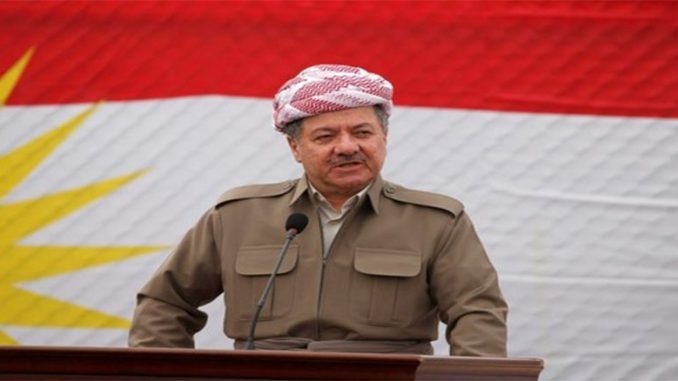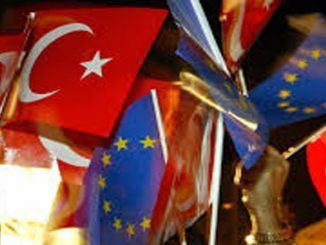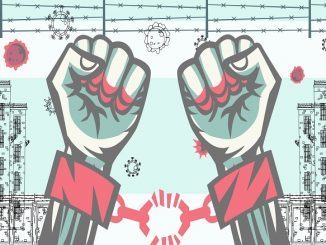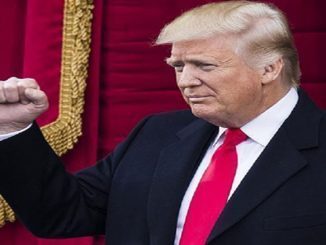
 BY : Zekeriya Kurşun*
BY : Zekeriya Kurşun*
On the morning of Sept. 26, there won’t be a new Kurdish state, a new Kurdish republic. Neither will the century-old dreams of Kurds come true as Kurdistan Regional Government (KRG) President Masoud Barzani claims. So, what will happen? In a single word: Chaos. Unfortunately, again, Kurds will be the ones most affected by this.
The independence referendum slated for Sept. 25 in northern Iraq is a rescue operation to save the political future of Barzani, who has been managing the process. This is evident by the referendum’s lack of legal basis, lack of any sort of planning, lack of discussion with the sides in northern Iraq and the central government. It is clear that such an attempt opposed by the Iraqi central government, countries such as Turkey, Iran and Syria – which directly oppose the matter – the international community and even part of the Kurdish opposition, will provide no benefit for the region and Kurds. I won’t talk about matters like the Ankara Agreement being opened to renegotiation, the rights of the countries in the region arising from international law or the U.N. law’s preventive intervention article. Because, in addition to all these, this venture will also add the Kurd-against-Kurd conflict to the Sunni-Shite, Sunni-Sunni, Kurd-Arab, Kurd-Turkmen, Turk-Kurd conflicts already ongoing in the region. A similar transformation took place in the region with the U.S.’s unjust invasion of Iraq in 2003. The region is still yet to overcome the chaos that was knowingly created back then with the claim to bring democracy to the country.
OUTCOMES OF THE REFERENDUM
This venture is doomed to fail:
First, despite all the triggering and two-faced promises, the international system will not allow a Kurdish state, especially an independent Kurdish state in northern Iraq. The international system, which has not been able to solve the Palestine issue for more than half a century, which is yet to make any progress in the Cyprus issue for four decades and which eventually made the region unlivable by dividing Sudan, is not ready to endure a similar new problem. In other words, the world is not ready for a new state.
The second matter is regional balances. It is clear that an attempt like this, which will not be approved by the countries in the region and primarily by Turkey, will not allow Barzani to realize his own dreams. Even though there may be differences today in discourse among the region’s countries and they may have been unprepared, the political and military alliance they will shortly form against such a setup will not allow the formation of an independent Kurdish state. Because the countries in the region, chiefly Turkey, see this matter as an issue that threatens national security. It is clear that they will not remain silent to a threat aimed at their own borders and even inside their own country. In reality, there is no way that a structure whose influence is limited to Dohuk, Erbil and its surroundings can realize both its own claims and establish sovereignty in all of northern Iraq, including Kirkuk, and provide a guarantee of peace to the countries in the region. This is knowingly throwing the Kurds into the fire.
The third problem is northern Iraq itself. Even though the Kurdish movement or movements in the region may have a century-old or even older history in the region, northern Iraq’s status was not built on this history. On the contrary, it emerged under special circumstances. It was built mostly over the injustice they suffered during the Saddam Hussein period, not upon the demand of the Kurdish people for a state. Unfortunately, the Iraqi central government, the countries in the region and both legal and illegal structures all tried to take advantage of this process. As a result, this led to new claims in addition to new unseen injustices as well as a new and rather chaotic problem like the Kirkuk issue. This referendum will add fuel to the fire rather than solve problems.
‘YES’ IS A KIRKUK ISSUE
There is no doubt that the Barzani administration will get a “yes” result from the ballot box. However, it also as clear as day that he will not be able to overcome these problems. Kirkuk alone will be enough as a problem it will not be able to overcome. Taking into consideration that the international interest in the region is not for the sake of Kurds and that everybody is after the oil in Kirkuk and Mosul, and also by looking at similar examples in the world, it is clear that the problem is not easy at all. If we were to look at the matter entirely in terms of humanity, we would face another tragedy and this is an aspect that would eternalize the problem. Kirkuk’s Turkmens were the segment treated most unjustly when tampering with the region’s social genetics for the last century. While Kirkuk used to be a Turkish city throughout history, the city’s demographic structure was completely destroyed, first under the British, then under the Iraqi Kingdom and Republic and especially during the Saddam period. After 2003, the Americans made the situation even worse. Just as no opportunity was given for the normalization of the demographic structure in the region, the census and referendum proposed in their Iraqi constitution for disputed territories like Kirkuk were never held and are far from bringing relief.
Turkmens are no longer the only side to this living problem. It has become a multi-sided issue, including the interests of the Iraqi central government and Turkey, which has overt ties with the Turkmens. While part of the Turkmens being Shiite allows Iran to be a side, Syrian Turkmens are also natural sides to the matter. How will Barzani, who is unable to ensure peace in his own little region between the tribes in Sulaymaniyah and other oppositional political structures, manage to overcome this complex matter? The U.S.’s two-faced politics and the support given by Israel in hopes that it would contribute to its own security, will not solve these problems. As a matter of fact, it will further deepen them. I am not even talking about the domino effect the problem will cause in other Gulf countries, primarily in Saudi Arabia.
Let us ask Barzani here once more where this is leading. Let us remind him of the millennium-old reality rather than the century-old hallucination. The region will have a future not through downsizing but through further integration. Of course identity rights and maintaining the regional resolve in any way will not prevent this. On a different note, Barzani must not forget that all these statements, each of which are advice seeking a solution, and were repeated over and over again, also include Turkey’s legitimate defense reflex.
Zekeriya Kurşun* : is a Turkish columnist who writes for Yeni Şafak Turkish newspaper. (Published in Yeni Şafak Turkish newspaper on September 21, 2017)



